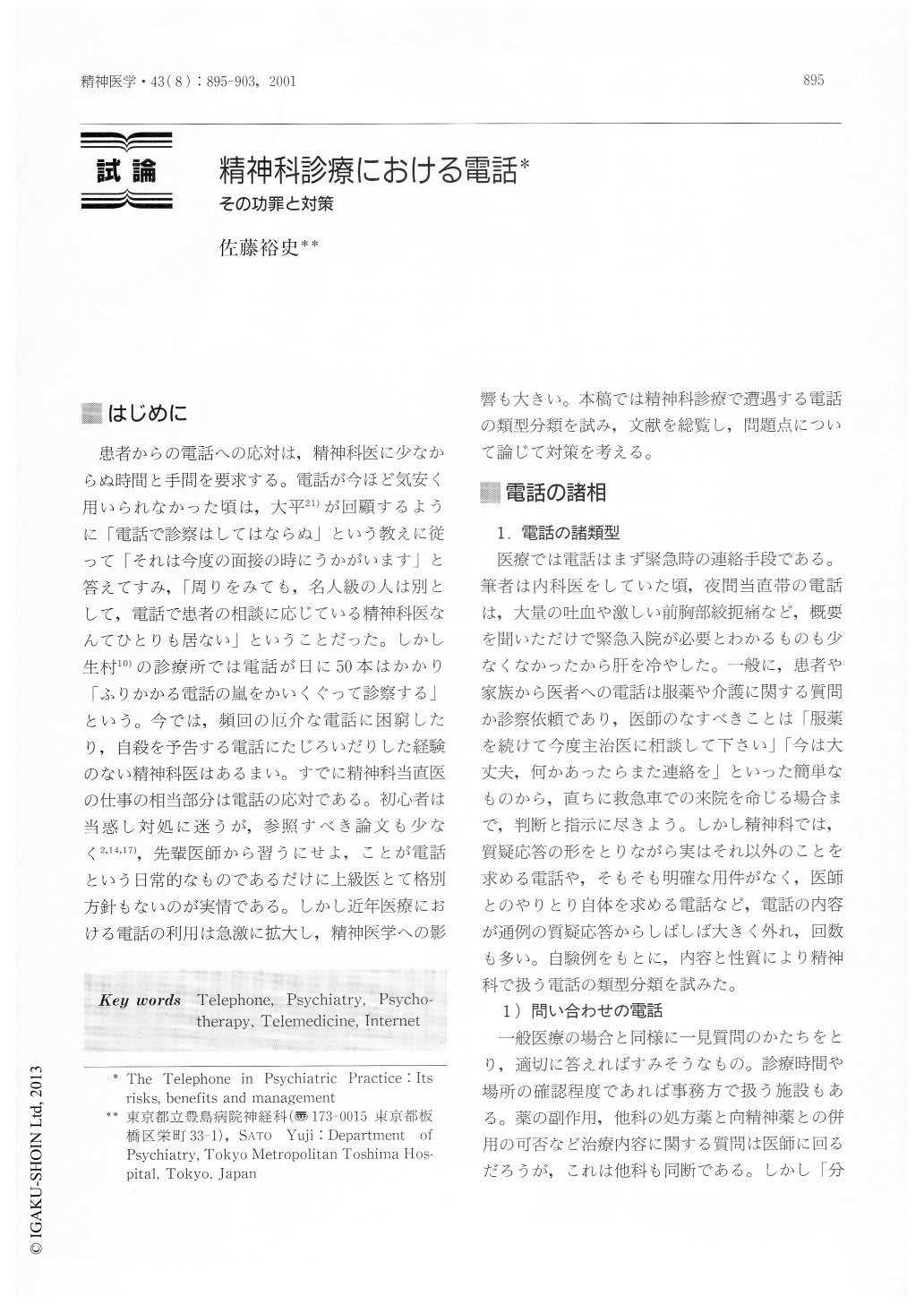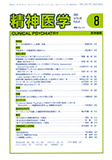Japanese
English
- 有料閲覧
- Abstract 文献概要
- 1ページ目 Look Inside
はじめに
患者からの電話への応対は,精神科医に少なからぬ時間と手間を要求する。電話が今ほど気安く用いられなかった頃は,大平21)が回顧するように「電話で診察はしてはならぬ」という教えに従って「それは今度の面接の時にうかがいます」と答えてすみ,「周りをみても,名人級の人は別として,電話で患者の相談に応じている精神科医なんてひとりも居ない」ということだった。しかし生村10)の診療所では電話が日に50本はかかり「ふりかかる電話の嵐をかいくぐって診察する」という。今では,頻回の厄介な電話に困窮したり,自殺を予告する電話にたじろいだりした経験のない精神科医はあるまい。すでに精神科当直医の仕事の相当部分は電話の応対である。初心者は当惑し対処に迷うが,参照すべき論文も少なく2,14,17),先輩医師から習うにせよ,ことが電話という日常的なものであるだけに上級医とて格別方針もないのが実情である。しかし近年医療における電話の利用は急激に拡大し,精神医学への影響も大きい。本稿では精神科診療で遭遇する電話の類型分類を試み,文献を総覧し,問題点について論じて対策を考える。
The telephone has come to pose complicated issues for today's practicing psychiatrists. Patients make telephone calls more easily than before, often as an alternative to actual psychotherapeutic interview rather than as an ad hoc means to contact medical service in emergency. The advent of the mobile phone, fax, e-mail and internet has undoubtedly facilitated communication between patients and psychiatrists, yet, at the same time, they have sometimes rendered the doctorpatient relationship untenable. Telephone calls are increasingly making heavy demands on on-call psychiatrists. For instance, they enable violent altercation, suicide threats, erotic seduction and so forth. By their very nature, telephone calls, therefore, reflect a certain psychopathology, whereby unstable interpersonal relationships can manifest themselves more readily than in face-to-face interaction.
The author of this paper attempts to make a classification of telephone calls from patients according to their content and nature (calls of inquiry or consultation, calls as an outlet for emotional discharge, ostensibly meaningless calls, anonymous calls, calls seeking relationships, calls from admitted patients), and discusses the pros and cons of telephone use as a special mode of interpersonal relationship in which verbal communication supersedes non-verbal. Recent literature on socalled telemedicine is then reviewed. Possible repercussions brought about by introducing new information technologies into medicine include, inter alia, diffusion of interpersonal relationship, fantasy of omnipotence evolving over phone calls and lesser capacity to regulate emotional outburst towards others. Telephone calls should be handled with more psychotherapeutic tact so as not to induce undue'telephone addiction' in patients with interpersonal psychopathology.
First, the therapeutic contract at the outset of treatment should include mutual agreement between psychiatrist and patient that telephone use is to be limited to emergencies and cannot be used as a substitute for actual sessions. Second, greater attention should be paid to non-verbal elements (e.g. tonal variations) to supplement on-line communication, which is by definition verbal. Third, before giving hasty advice or interpretation to anxious patients, it is often more helpful to make clear what circumstances have prompted the phone call.

Copyright © 2001, Igaku-Shoin Ltd. All rights reserved.


